Why Do We Write The Things We Do?
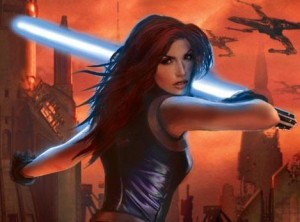 Last week at Eleven-ThirtyEight, Lisa Schap wrote about Mara Jade and her hopes for the character in Star Wars’ future. She wasn’t originally a Mara fan and explains why; the full piece is worth the read. Like Schap, I think Disney|Star Wars has far more to gain including her character in the movies’ future and a lot to lose by not. At the same time, as I have noted in my speculation series, it’s important to remember that Mara’s real significance isn’t as a love interest or wife for Luke, but rather as a role model for what great female characters can and should be.
Last week at Eleven-ThirtyEight, Lisa Schap wrote about Mara Jade and her hopes for the character in Star Wars’ future. She wasn’t originally a Mara fan and explains why; the full piece is worth the read. Like Schap, I think Disney|Star Wars has far more to gain including her character in the movies’ future and a lot to lose by not. At the same time, as I have noted in my speculation series, it’s important to remember that Mara’s real significance isn’t as a love interest or wife for Luke, but rather as a role model for what great female characters can and should be.
What I thought was really compelling in Schap’s piece came at the end:
Mara Jade has been a part of the Expanded Universe for a long time as a strong female character. I’m also slightly tired of heroes always having a missing or dead parent(s) in movies. So many of the recent sci-fi/fantasy stories seem to start with dead parents and I don’t think it is always necessary.
Why do heroes so often start without parents? Is it a necessary part of a hero’s journey, or just what we’re used to? Many of the woes in fiction – lack of diversity, poorly portrayed female characters, tropes that stereotype or minimize non-white non-male characters – can be attributed to the fact that storytellers keep mirroring what has been written before. The loss of a father was apparently deemed so necessary to the reboot of the Star Trek movies, the writers included the death of a father figure twice. The first one, Kirk’s actual father, was killed in the opening sequence of Star Trek. For Star Trek Into Darkness, the writers expanded the role of the surrogate father figure, Pike, who is then offed to propel Kirk along the next part of his heroic arc. It’s fair to ask, is there nothing else that can propel a character forward on his journey? Or did the writers just slip into a hero’s journey lost father trope because it’s comfortable?
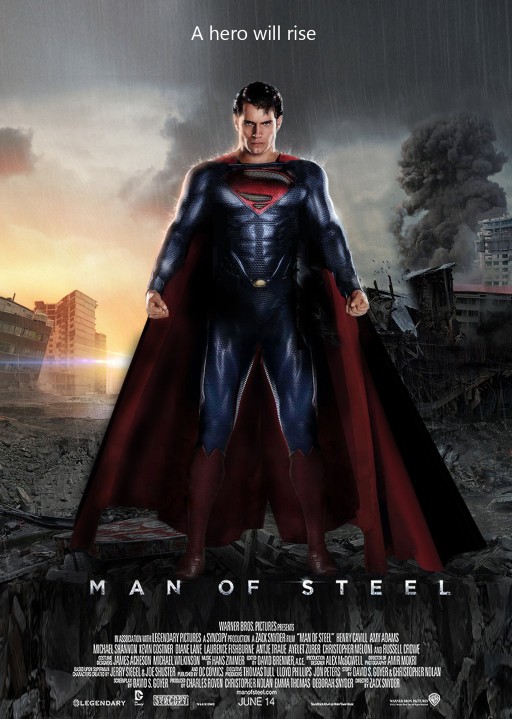 Also last week, in an interview about Man of Steel with the Japan Times, director Zack Snyder explained that “mass deaths are used to symbolize disasters. In other countries like Greece and Japan, myths were recounted through the generations, partly to answer unanswerable questions about death and violence. In America, we don’t have that legacy of ancient mythology. Superman is probably the closest we get. It’s a way of recounting the myth.” As Russ Fischer at /Film points out, “mass deaths don’t symbolize disasters — they ARE disasters. And the ‘unanswerable questions’ that myths once tried to answer are now mostly, well, answered. So myth has a different role now than it once did.”
Also last week, in an interview about Man of Steel with the Japan Times, director Zack Snyder explained that “mass deaths are used to symbolize disasters. In other countries like Greece and Japan, myths were recounted through the generations, partly to answer unanswerable questions about death and violence. In America, we don’t have that legacy of ancient mythology. Superman is probably the closest we get. It’s a way of recounting the myth.” As Russ Fischer at /Film points out, “mass deaths don’t symbolize disasters — they ARE disasters. And the ‘unanswerable questions’ that myths once tried to answer are now mostly, well, answered. So myth has a different role now than it once did.”
Snyder’s notions on telling Superman’s story contain an interesting conflict: he is apparently trying to modernize Superman, yet also harking back to ancient mythic themes. The flaw in his logic is thinking that he has to rely on ancient myths because myth doesn’t evolve – but the reality is, it does. Over the years the Superman franchise helped define the American myth as one inclusive of family, whether that is real, adopted, or as part of a team that fights for truth and justice. Trying to recreate the past, with “mythic” disasters in Man of Steel and needless father figure deaths in Man of Steel and Star Trek Into Darkness, tripped up the summer blockbusters.
In another great piece last week, Nanci Schwartz at Tosche Station talks about her reaction to a storytelling point in the latest Star Wars Expanded Universe book, John Jackson Miller’s Kenobi. I won’t get into the spoilers of the book; it’s enough to say the story relies upon readers having certain assumptions about who and what characters are – some of those assumptions handed to us on a platter by the movie canon, in fact – and twists those assumptions around to elicit surprise at a certain moment. The problem is, I’m not sure that the people who really need their eyes opened – the ones who are most deeply entrenched in the set of assumptions that Miller was trying to subvert – will get the point the author was trying to make. The important takeaway from Schwartz’s post is that even people who want science fiction and fantasy to diversify don’t always see their own blindspots. For some of them, Kenobi may be an eye-opener, too.
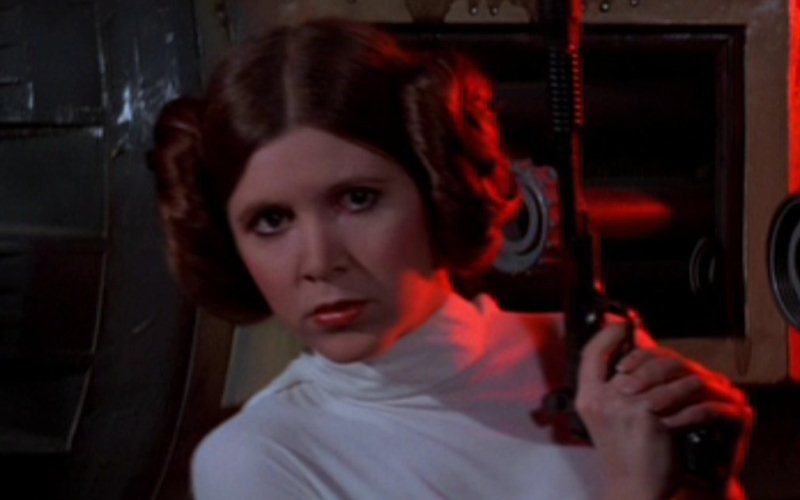 Assumptions like Twi’leks are dancers and a hero’s parents must die come from the same place: the breadth of stories we have consumed previously that have fostered and reinforced those ideas. It’s important to remember, though, that Star Wars was a breakout because it was brave and broke a few molds in the mythic archetype. Superficially Princess Leia serves as a diversion – the Woman as Temptress – when Han and Luke set out to rescue her on the Death Star. But she ends up as the Woman Who Will Keep The Hero on His Path When He Doesn’t Have a Plan. Unfortunately, storytellers keep repeating the same old patterns, and in the process they have to keep raising their stakes to ridiculous levels to make their version more memorable than the previous ones. What they should be striving for instead is creating something fresh like Star Wars was in 1977, and that includes finding new ways to challenge a hero along the way.
Assumptions like Twi’leks are dancers and a hero’s parents must die come from the same place: the breadth of stories we have consumed previously that have fostered and reinforced those ideas. It’s important to remember, though, that Star Wars was a breakout because it was brave and broke a few molds in the mythic archetype. Superficially Princess Leia serves as a diversion – the Woman as Temptress – when Han and Luke set out to rescue her on the Death Star. But she ends up as the Woman Who Will Keep The Hero on His Path When He Doesn’t Have a Plan. Unfortunately, storytellers keep repeating the same old patterns, and in the process they have to keep raising their stakes to ridiculous levels to make their version more memorable than the previous ones. What they should be striving for instead is creating something fresh like Star Wars was in 1977, and that includes finding new ways to challenge a hero along the way.
Consider what is accomplished when the hero’s parents die. The loss of parental figures creates a vacuum in the hero’s support structure and challenges his or her ability to overcome philosophical and moral hurdles while in a fragile emotional state. In ancient myth, the patrons of storytellers were kings and nobles, who benefited from perpetuation of the myth of the Chosen One; for centuries, royalty existed purely out of the reinforced idea of the divine right of kings, that certain individuals were literally supernaturally blessed to rule. The death of parental figures allowed the Chosen One to ascend to his rightful position and embark on the quest or journey. In addition, back when early myth was shaped women died in childbirth and fathers died in war. Isolation from family wasn’t an abstract idea to the people who told stories or to their audience. As life expectancies shifted and family units changed, though, the audience is now one that has multiple generations in a household, and stories premised on isolation from family risk becoming unrelatable. The right to rule by divine authority is a concept that is now the exception rather than the norm. Disney is already redefining mythic royal titles to express heroic qualities that can be assumed by anyone.
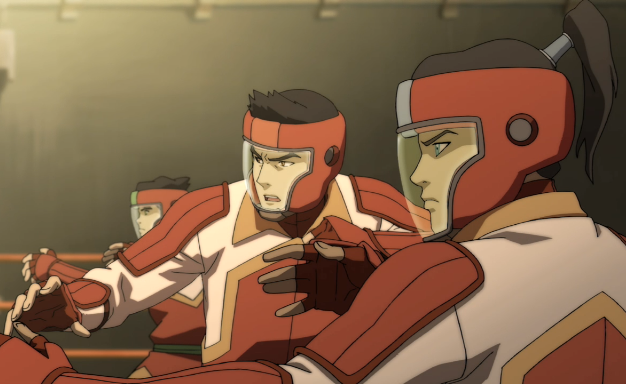 Is it possible to create a situation where a protagonist is isolated from the familial and social support structure in a way that allows them to progress on a hero’s journey without killing the parents? More and more modern stories are starting to tackle this question. Return of the Jedi ends with a new family seemingly formed with Han, Leia, and Luke. Tangled and Brave end with the family units intact. Smallville, Buffy the Vampire Slayer, and Arrow have all challenged the notion with partially intact families, although in each instance one parental death has weighed into the equation. Katniss’s father is dead before her journey begins, and her mother and sister serve as powerful motivators within her heroic arc. She isn’t stripped from her family support system by death but rather volunteers for her journey to save her sister from an untimely one. Korra is separated from her parents in the Southern Water Tribe to undergo her training in Republic City, and she quickly joins Tenzin’s family household on Air Temple Island and forms a new social support structure with the Fire Ferrets. None of that detracts from her heroine’s journey to stop Amon and the Equalists and unlock her airbending to fully become the Avatar.
Is it possible to create a situation where a protagonist is isolated from the familial and social support structure in a way that allows them to progress on a hero’s journey without killing the parents? More and more modern stories are starting to tackle this question. Return of the Jedi ends with a new family seemingly formed with Han, Leia, and Luke. Tangled and Brave end with the family units intact. Smallville, Buffy the Vampire Slayer, and Arrow have all challenged the notion with partially intact families, although in each instance one parental death has weighed into the equation. Katniss’s father is dead before her journey begins, and her mother and sister serve as powerful motivators within her heroic arc. She isn’t stripped from her family support system by death but rather volunteers for her journey to save her sister from an untimely one. Korra is separated from her parents in the Southern Water Tribe to undergo her training in Republic City, and she quickly joins Tenzin’s family household on Air Temple Island and forms a new social support structure with the Fire Ferrets. None of that detracts from her heroine’s journey to stop Amon and the Equalists and unlock her airbending to fully become the Avatar.
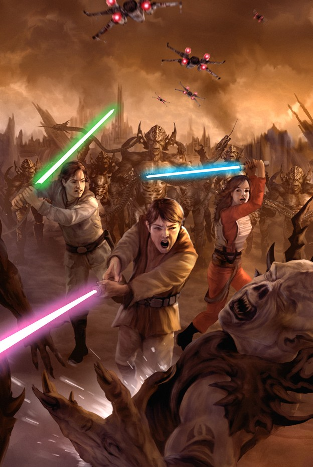 In the Star Wars Expanded Universe, Jaina and Jacen Solo are an interesting case where the dictates of the franchise prohibited killing off their parents in order to set their journeys into motion. Jacen is metaphorically isolated from his fellow Jedi for most of the opening books in the New Jedi Order due to philosophical disagreements; in Traitor he is kidnapped, tortured, and brainwashed; after escaping his captors he becomes the figurative hero by the series’ end. His sister Jaina has a truncated hero’s journey within the same series, based around physical and emotional isolation from her parents and mentors. Her youngest brother dies and for a time she believes her twin is dead, but her elders simply have bigger concerns, like saving the galaxy, than Jaina’s state of mind. She is abandoned to find her own path toward Jedi heroism. The Solo twins provide yet another example that it is possible to start a character down a heroic path without killing his father and/or mother – although it did require destroying the entire city planet of Coruscant.
In the Star Wars Expanded Universe, Jaina and Jacen Solo are an interesting case where the dictates of the franchise prohibited killing off their parents in order to set their journeys into motion. Jacen is metaphorically isolated from his fellow Jedi for most of the opening books in the New Jedi Order due to philosophical disagreements; in Traitor he is kidnapped, tortured, and brainwashed; after escaping his captors he becomes the figurative hero by the series’ end. His sister Jaina has a truncated hero’s journey within the same series, based around physical and emotional isolation from her parents and mentors. Her youngest brother dies and for a time she believes her twin is dead, but her elders simply have bigger concerns, like saving the galaxy, than Jaina’s state of mind. She is abandoned to find her own path toward Jedi heroism. The Solo twins provide yet another example that it is possible to start a character down a heroic path without killing his father and/or mother – although it did require destroying the entire city planet of Coruscant.
Charlie Jane Anders’ post over at io9, “The Nine Vital Questions To Ask Before Destroying a City,” is really just the tip of the iceberg on how storytellers need to question their choices on everything from character deaths to heroic tropes. One of the reasons I see Marvel’s approach working so well is that the stories are continuously challenging the cookie-cutter hero archetypal mold that entertainment industry has cast. Black Widow’s screen time in The Avengers, Tony Stark’s PTSD in Iron Man 3, an American hero in the new millennium in Captain America – all of these choices went against conventional wisdom. Marvel’s storytelling consultant Joss Whedon has been Hulk-smashing the Hollywood hit-making formula since conceiving Buffy the Vampire Slayer, and has even expressed this forward-looking mentality when asked about Star Wars’ future by Digital Spy.
Circling back to Mara Jade, who in a lot of ways has parallels to The Avengers’ Black Widow. Neither is a typical hero. Not just because they are both women in the black catsuit with awesome red hair, but because the road to doing something for the greater good was one less travelled. They aren’t Chosen Ones; they are simply people who decided at some point to do the right thing. And that is exactly the reason Mara shouldn’t be lost to Star Wars in the cinematic reboot of the post-Return of the Jedi timeline – because she represents a completely different path to heroism, and it is one that is no less important to the future of storytelling.
Related posts:
- Legend of a Strong Female Heroine: Korra’s Journey
- Journey of a Strong Female Heroine: Katniss Everdeen
- Seeking Strong Female Heroines: Mara Jade
- Seeking Strong Female Heroines: Jaina Solo
- Let the Speculation Begin! – Part One
- Let the Speculation Begin! – Part Two: Context
- Fangirls Around the Web: SDCC 2013 – Marvel Versus DC
Tricia Barr took her understanding of brand management and marketing, mixed it with a love of genre storytelling, and added a dash of social media flare to create FANgirl Blog, where she discusses Star Wars, fandom, and strong female characters. She also writes about Star Wars for Random House’s science fiction and fantasy blog Suvudu.com and Star Wars Insider magazine and is a contributor for Her Universe’s Year of the Fangirl.
Tricia is putting the finishing touches on her first novel, Wynde – a military science fiction with a fantastical twist that features heroines Vespa Wynde and Gemini Reed. For excerpts and tales of her adventures in creating a fictional universe, hop over to TriciaBarr.com.
For updates on all things FANgirl follow @FANgirlcantina on Twitter or like FANgirl Zone on Facebook. At times she tries the Tumblr.
- Hyperspace Theories: Bad Luck Ghorman - June 2, 2025
- Hyperspace Theories: One Year Later as ANDOR Kicks Off Season Two - May 15, 2025
- REVIEW: Tales of the Underworld - May 4, 2025

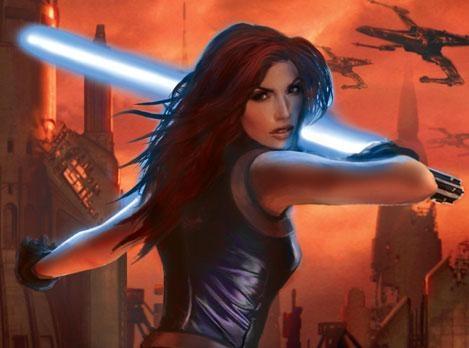








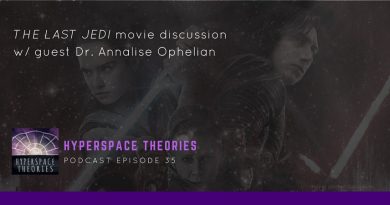
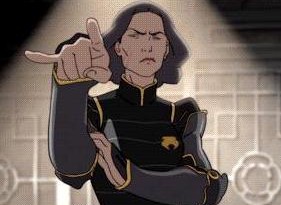
May I ask what you mean when you say that Jacen became a figurative hero by the end of the New Jedi Order?
In that he’s representational of what is expected a hero to be – the champion or victor who ends the war/conflict.